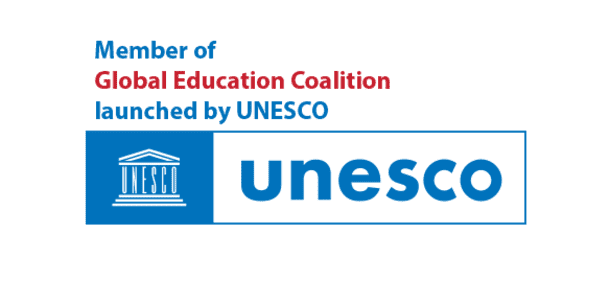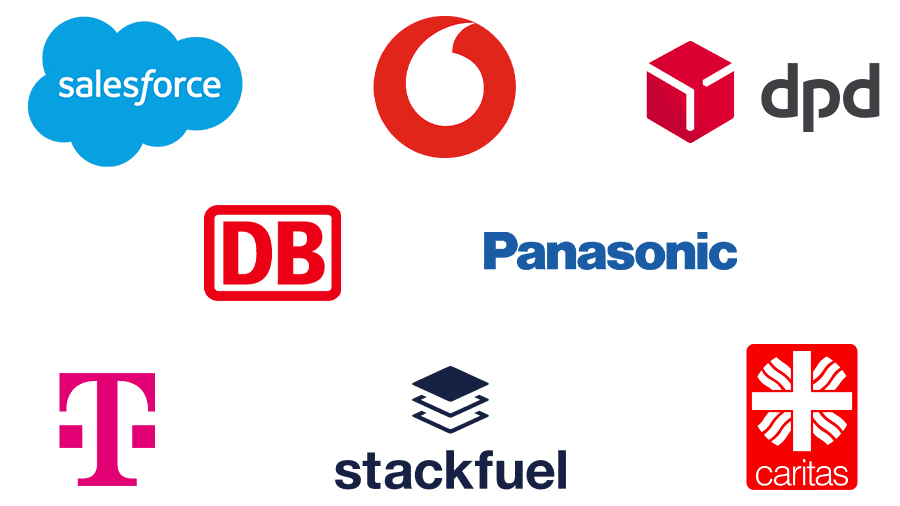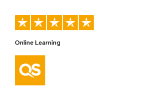
Spanish for Beginners
The Spanish for Beginners course is designed to introduce students to the fundamentals of the Spanish language, focusing on building essential vocabulary, grammar structures, and communication skills. Through interactive lessons, practical exercises, and cultural insights, students will develop the foundational knowledge and confidence needed to engage in basic conversations and navigate everyday situations in Spanish-speaking environments.
Overview

Spanish for Beginners
Course Learning Outcomes (CLOs) and SLOs
Course Learning Outcomes (CLOs) typically include:
Basic Language Proficiency: Develop proficiency in basic Spanish language skills, including pronunciation, grammar, vocabulary, and sentence structure.
Communication Skills: Acquire the ability to initiate and maintain simple conversations in Spanish on familiar topics, such as greetings, introductions, daily activities, and personal interests.
Reading Comprehension: Gain the ability to understand and interpret simple written texts in Spanish, such as short stories, advertisements, and basic informational materials.
Cultural Awareness: Develop awareness of Hispanic cultures, customs, and traditions that influence language usage and communication.
Student Learning Outcomes (SLOs) are specific goals for students, such as:
Basic Conversation: Engage in basic conversations in Spanish using common phrases and expressions related to everyday situations.
Reading Skills: Read and comprehend simple written texts in Spanish, demonstrating understanding of key ideas and details.
Writing Skills: Write short sentences and paragraphs in Spanish using correct grammar, vocabulary, and spelling.
Cultural Competence: Understand and appreciate cultural differences and practices within Spanish-speaking communities while using the language.

Benefits
With AI, the world is your oyster! It is an emerging field, rapidly growing, ever evolving and watched with a keen eye by industries and markets globally. There are many benefits to an education in AI:
In demand Career
With a Bachelor in artificial intelligence you are equipped with in-demand skills in the rapidly growing field of AI. Knowledge of developing AI systems, data analysis and AI techniques makes you valuable across industries, right from healthcare, finance, tech and more. This degree prepares you for career that has multiple options for diversification. AI professionals include AI engineers, data scientists, machine learning specialists, AI consultants, researchers and more. AI is transformative technology that is revolutionising the world. With an education background in AI, you are set up in an in-demand career field with an exciting future ahead!
Innovation and advancement
Applied AI is all about finding solutions and using AI systems to make life simpler. Applied AI draws on its solid foundation in Computer Science to analyse and provide solutions for real world challenges. You are prepared to address complex problems and contribute meaningfully in domains like healthcare diagnostics, fraud detection, autonomous vehicles, personalised recommendations and more. Being able to apply AI techniques for solving tasks makes for an extremely rewarding and impactful job role!
Solving real world problems
AI aims to constantly bridge the gap between natural intelligence and machine learning - it is a field of cutting edge research, innovation and advancing technology. This makes it ever evolving, with new algorithms, models and techniques being developed. By studying AI at an undergraduate level, you gain a strong foundation in AI fundamentals that help you better understand the latest advancements. You step into a career that empowers you to push the boundaries of AI, contribute to research and development and drive innovation in the field.
100% International
Study at your own pace from anywhere in the world
Recommended by 96% of our graduates
According to our latest alumni survey
50,000+ students
enrolled in Germany’s largest university
Study contents
Contents
Unit 1: Introduction to Spanish
Introduction to the Spanish language and culture
Basic phrases and greetings
Alphabet and pronunciation
Basic sentence structure
Unit 2: Numbers and Counting
Numbers 1-100
Counting in Spanish
Ordinal numbers (1st, 2nd, 3rd, etc.)
Basic math operations (addition, subtraction, multiplication, division)
Unit 3: Introductions and Basic Phrases
Introducing yourself and others
Asking for someone's name and nationality
Basic phrases for traveling (hello, goodbye, thank you, etc.)
Using the verb "ser" (to be) and "estar" (to be) in present tense
Unit 4: Food and Drink
Food vocabulary (fruit, vegetables, meats, etc.)
Drinks (water, coffee, juice, etc.)
Ordering food at a restaurant
Table manners
Unit 5: Family and Relationships
Family vocabulary (mom, dad, brother, sister, etc.)
Romantic relationships (boyfriend, girlfriend, husband, wife)
Basic phrases for expressing feelings and emotions
Unit 6: Shopping
Shopping vocabulary (store, market, prices, etc.)
Asking for prices and making change
Using credit cards and cash
Unit 7: Transportation
Transportation vocabulary (car, bus, train, taxi)
Directions and navigation
Asking for help with directions
Unit 8: Accommodations
Hotel vocabulary (hotel, room, bed, etc.)
Booking a hotel room
Checking in and out
Unit 9: Health and Wellness
Medical vocabulary (doctor, hospital, medicine)
Expressing symptoms and describing health issues
Basic phrases for seeking medical attention
Unit 10: Entertainment
Hobbies and interests (sports, music, movies)
Entertainment vocabulary (theater, concert, museum)
Making plans with friends
Admission
Admission Criteria
¡Hola! Here's a general outline of the admission process for a Spanish for Beginners course:
Eligibility:
Anyone interested in learning Spanish can enroll in a Spanish for Beginners course, regardless of their educational background or language proficiency level.
Admission Requirements:
Age: Most Spanish for Beginners courses are designed for adults and young adults (18+ years old). However, some courses may be available for children and teenagers, typically with a minimum age requirement of 12-13 years old.
Language Proficiency: No prior knowledge of Spanish is required, as the course is designed for absolute beginners.
Education: A high school diploma or equivalent is usually not required, but it's recommended to have a basic understanding of grammar and vocabulary from previous language learning experiences.
Application Process:
Choose a Course: Select a Spanish for Beginners course that suits your schedule, location, and learning style. You can search online or visit a language school's website to find courses.
Enroll: Fill out the enrollment form on the course website or at the language school's office. Provide your personal and contact information, as well as any relevant language learning experience or certifications.
Pay Tuition Fees: Pay the course tuition fees, which vary depending on the institution, location, and course duration.
Orientation Session: Attend an orientation session (usually free) to meet the instructor, learn about the course syllabus, and ask questions.
Additional Documents:
Valid government-issued ID (e.g., passport, driver's license)
Proof of payment (e.g., receipt or bank transfer confirmation)
Any relevant language learning certifications or diplomas
Tips:
Be prepared to provide proof of identity and payment during the enrollment process.
Some courses may require a placement test to determine your starting level.
Don't hesitate to ask questions or seek clarification about any requirements or procedures during the application process.
Careers
Career Paths
Tourism and Hospitality Industry: With a basic knowledge of Spanish, you can work in the tourism industry, such as a hotel receptionist, tour guide, or travel agent.
Customer Service Representative: Many companies have a significant customer base in Spanish-speaking countries, so having basic Spanish skills can be an asset in this field.
International Business: As global trade and commerce continue to grow, being able to communicate in Spanish can be beneficial for business professionals, especially those working with Latin American or Spanish-speaking clients.
Transcriptionist or Interpreter: You can work as a transcriptionist or interpreter for Spanish-speaking clients, which can be a great way to use your language skills.
Teaching Assistant or Tutor: You can assist Spanish teachers or tutors, or even teach basic Spanish classes yourself.
Marketing and Advertising: With basic Spanish skills, you can work in marketing and advertising agencies that target Spanish-speaking audiences.
Non-Profit or Humanitarian Work: Many non-profit organizations work with Spanish-speaking communities, and having basic Spanish skills can be helpful in these roles.
Administrative Assistant: You can work as an administrative assistant for companies that deal with Spanish-speaking clients or partners.
Event Planner: With basic Spanish skills, you can plan events for companies or organizations that cater to Spanish-speaking clients.
International Aid Worker: If you're interested in humanitarian work, having basic Spanish skills can be an asset in working with organizations that provide aid to Spanish-speaking communities.
Student reviews
Coming Soon.
Tuition fees
All our study programmes include the following benefits
- Teaching and study material
- Marking of your end-of-module exams
- Monthly live and recorded tutorials
- Use of the online campus
- Individual study coaching
- Online exams
- Career coaching
- Learn English for free
Our global recognition

IU is recognised by WES Canada and U.S., which means your degree can be converted to points in the local system for purposes of immigration, work, or studies.

As the first EU institution in UNESCO's Global Education Coalition, IU is committed to ensuring accessible quality education to students in crisis worldwide through free online micro-credentials.
Our company partners

For over 20 years, IU has established partnerships with leading global companies. This offers you the chance to gain firsthand experience through internships and projects and allow us to adapt our learning content to the ever-evolving needs of the labour market. You'll benefit from an education designed to bridge the gap between theory and real-world practice, ensuring your readiness for your future career.
Recognition
Recognition of previous achievements
Have you already completed a training course, studied at a university or gained work experience? Have you completed a course or a learning path through EPIBM LinkedIn Learning, and earned a certificate? Then you have the opportunity to get your previous achievements recognised, and complete your studies at EPIBM sooner.

Save time:
Skip individual modules or whole semesters!
Even before you apply for a study programme, we’ll gladly check whether we can take your previous achievements into account: 100% online, no strings attached. Simply fill in our recognition application form, which you can find under the content section of each study programme's webpage, and upload it via our upload section. You can also e-mail it to us, or send it via post.
Send an email to [email protected] to find out which previous achievements you can get recognised. You can get your previous achievements recognised during your studies.
Recognition files
Autonomous vehicles developer
With AI, the world is your oyster! It is an emerging field, rapidly growing, ever evolving and watched with a keen eye by industries and markets globally. There are many benefits to an education in AI:
That’s why after graduating, you’ll be able to apply your professional skills and knowledge, and work for development teams at any sector you find appealing.


Augmented reality (AR/VR) developer
Virtual (or augmented) reality isn’t all just fun and games, as great and enjoyable as that aspect is. It can also be used for groundbreaking social and psychological research, defensive purposes and therapy.
With an Applied Artificial Intelligence degree from IU University of Applied Sciences, you can take part in this vital field of technological development, and work on a wide variety of interesting projects.
Change what the world thinks about the possibilities that AI offers, and make a real difference in people’s lives, while enjoying every step of the process.
F.A.Q
Frequently Asked Questions
You might also be interested in these study programmes
Accredited and certified













